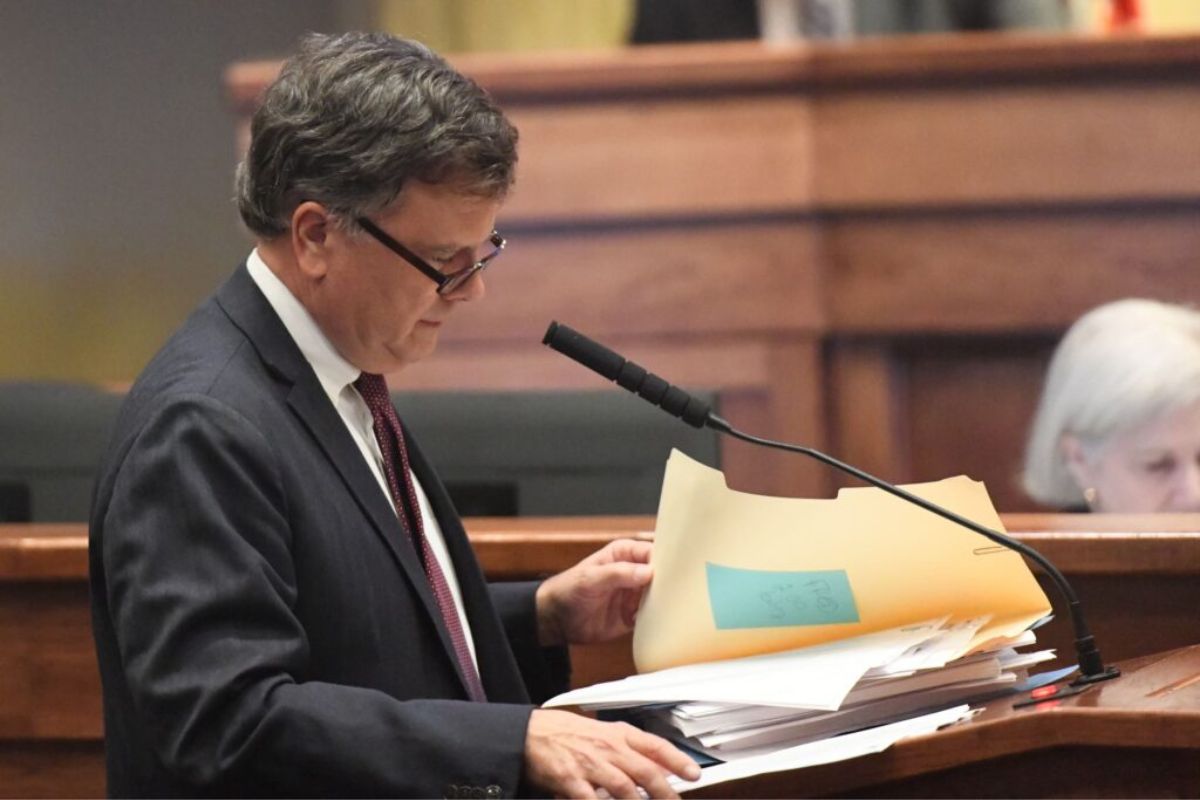Alabama Senate Approves Bill Limit Voluntary: The recent approval of the bill in the Alabama Senate imposing restrictions on voluntary union recognition has sparked a wave of discussion amidst varying opinions. Sen. Arthur Orr’s sponsored legislation, mandating secret ballot elections for union representation, has drawn attention for its potential impact on the state’s labor landscape.
As stakeholders weigh in on the implications of this move, concerns over the balance between business interests and workers’ rights have come to the forefront. The journey of this bill through the House of Representatives promises further deliberation and scrutiny, setting the stage for a deeper exploration into the complexities of union dynamics in Alabama.
Introduction and Legislative Process
The legislative process surrounding the approval of the bill limiting voluntary union recognition in Alabama was characterized by extensive discussions among senators, culminating in a 23-5 vote in favor of the legislation. Sponsored by Sen. Arthur Orr, R-Decatur, the bill, SB 231, aims to prohibit companies from receiving economic incentives if they voluntarily recognize a union based solely on signed authorization cards, without the option for a secret ballot election to select a bargaining representative.
During the Senate floor debate, Sen. Orr emphasized the importance of ensuring fair and transparent processes in determining union representation within companies. The bill’s passing signifies a shift in Alabama’s approach to union recognition, prioritizing the use of secret ballot elections as the primary method for selecting bargaining representatives. This move has been met with both support and opposition, with proponents arguing for the protection of employees’ rights to choose representation freely and opponents expressing concerns about potential limitations on unions’ ability to organize effectively within the state.
Context and Stakeholder Perspectives
Amidst ongoing unionization efforts at prominent automotive plants in Alabama, divergent perspectives from key stakeholders have emerged regarding the recently approved bill limiting voluntary union recognition. Workers at Mercedes-Benz and Hyundai plants have been vocal about pay and benefit issues, prompting a union vote at the Mercedes plant in early May. Governor Kay Ivey and state officials have publicly criticized the union drive, aligning with the stance taken by the Senate in passing the bill. The legislation, amended to exclude companies with existing unionized workforces, reflects Alabama’s status as having the highest unionization rate in the South.
While some view the bill as a means to protect businesses and maintain the current labor landscape, others, particularly workers and union supporters, see it as a hindrance to workers’ rights and collective bargaining power. The contrasting viewpoints underscore the complex dynamics at play in Alabama’s evolving labor relations scene, where the interests of workers, businesses, and government entities intersect and sometimes collide.
Discussion and Next Steps
In light of the concerns raised by Senators Smitherman and Singleton regarding the implications of the bill on workers’ rights and the treatment of employees in factories, the focus now shifts towards the potential outcomes as the bill advances to the House of Representatives for further review.
Sen. Rodger Smitherman, D-Birmingham, sought clarification from Sen. Orr on the bill’s specifics, emphasizing the importance of people’s rights to organize. Sen. Orr explained that the bill mandates secret elections for unions to safeguard against coercion.
Senate Minority Leader Bobby Singleton, D-Greensboro, expressed frustration over the treatment of employees in factories and the perceived lack of compromise on the bill. With the bill’s passage in the Senate, it now faces deliberation in the House of Representatives.
The upcoming discussions in the House will likely explore further into the nuances of the bill, considering the differing perspectives on workers’ rights, union recognition, and the overall impact on labor practices in Alabama. As the bill progresses through the legislative process, stakeholders and lawmakers will continue to examine its potential implications for workers and unions in the state.
News in Brief
The Alabama Senate’s approval of the bill limiting voluntary union recognition signifies a significant shift in the state’s approach to labor relations.
The requirement for secret ballot elections for union representation aims to guarantee fairness and transparency in the process.
This legislation has sparked divergent perspectives among stakeholders, with some viewing it as protecting businesses and others as hindering workers’ rights.
The bill’s progression to the House of Representatives will continue to shape the discourse on labor issues in Alabama.

